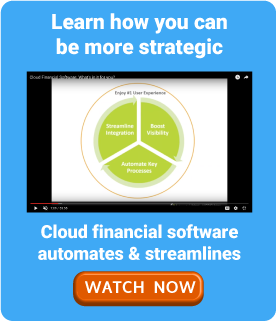Ever since e-commerce first gained traction in the 1990s, state governments have wondered about how to best assess sales taxes for online purchases. The standard since 1992 has been the U.S. Supreme Court's ruling in Quill Corp. v. North Dakota, which held that a state cannot charge a retailer sales tax unless that merchant has a "nexus" (i.e., a storefront or an office of any kind) therein.
Why sales tax collection could be on the verge of a major shift
 However, pressure has increased over the years for a new approach, due to the rising volume of e-commerce transactions along with the age of the nexus rules:
However, pressure has increased over the years for a new approach, due to the rising volume of e-commerce transactions along with the age of the nexus rules:
- E-commerce was an $89.08 billion market in the U.S. in 2015, having grown more than 14 percent year-over-year, according to the U.S. Department of Commerce.
- The original Quill Corp. ruling was not even for internet retailers, but mail-order merchants that collectively operated at a smaller scale.
- Sales taxes are an increasingly important revenue stream for states averse to income tax hikes and/or additional borrowing; taxing remote purchases is a huge opportunity.
Every July 1, 46 U.S. states begin new fiscal years, and on those occasions any changes to their respective sales tax rates take effect. In 2016, there are a number of shifts on the horizon, along with the possibility that the U.S. Senate and House of Representatives will hold a vote this year on the Market Fairness Act of 2015.
"Sales taxes are an increasingly important revenue stream for states."
Businesses have a lot of keep track of in addition to taxes and applicable regulations. Let's look at what they should take away from this year's confirmed and potential updates, as well as how they can use cloud ERP software and tax automation solutions to adapt.
What is changing on July 1, 2016, and beyond?
There are too many sales tax-related changes to cover all of them here, but there are two broad ones that we should look at: various state-level challenges to the nexus law status quo, and the federal Market Fairness Act.
Nexus laws
Thirteen state legislatures have either introduced bills with alterations to their nexus laws for remote purchases or are already expecting a change in 2016 (another, from Mississippi, had a bill die in committee in February 2016). These bills vary widely from one state to the next.

Sales tax collection is becoming more aggressive for internet/remote merchants.
Some, such as the one in Illinois, are simply shell bills for enacting the Market Fairness Act. Others like Louisiana's presume a nexus if an in-state affiliate is used for advertising or promotion leading up to a sale.
Alabama has previously revised its remote merchant rules to such an extent that it expects a possible court challenge. The change in some states including Louisiana, Maine and Missouri have prompted the e-commerce giant Amazon to prevent residents from joining its Amazon Associates program.
Market Fairness Act
The Market Fairness Act of 2015 is a federal bill that would allow for the collection and use of sales taxes even from merchants with no physical presence in a state. In other words, it would standardize a new freedom for states to take in sales tax, removing the need for each one to pass its own nexus bill.
It is possible that the Market Fairness Act could be acted upon by Congress in 2016. According to the Avalara TaxRates blog, a vote could come as part of legislative horse-trading to move along an unrelated customs bill. In early 2016, a Senate vote looked more likely than a House one, but as of June 2016, no action had been taken since the legislation was referred to the Senate Finance Committee in March 2015.
Adapting to the shifting sales tax landscape
Many e-commerce retailers are SMBs with limited resources for adapting to sweeping regulatory change. How can they keep pace?
Affordable cloud ERP and tax automaton software is a great place to start. Cloud financial software such as Intacct integrates with AvaTax for simplified sales tax management for:
- Continuously updated tax tables for accurate calculations.
- Automated operations for lower labor costs and fewer errors.
- Freedom from manual spreadsheet-based processes.
Once implemented with the help of an experienced partner like RKL eSolutions, cloud accounting software gives you the option for many integrations to handle everything from sales tax to custom relationship management. It's the best way to keep thriving even as laws and marketplaces continue changing.




